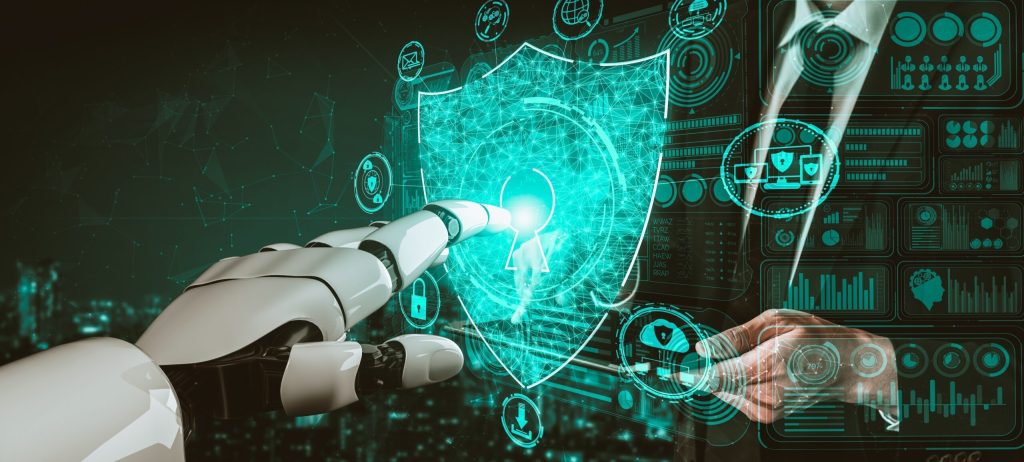
Artificial Intelligence (AI) stands at the forefront of technological advancement, promising convenient and innovative solutions. While the potential of AI is undeniably exhilarating, it is crucial to examine how it impacts our privacy and freedom. What are the risks associated with the use of gigantic datasets? What are the implications of using all kinds of sensitive and personal information inside training data? This article delves into the balance between AI innovation in various subdomains and preserving our fundamental human rights regarding privacy. More specifically, we formulate the thesis as follows: The pursuit of innovation in AI should always safeguard human rights to ensure a future where privacy is not compromised. To support our thesis, we discuss why the use of sensitive information in data is problematic in fields such as healthcare, how it can lead to bias and profiling in automated decision-making systems, and finally, we discuss how privacy is greatly at risk by AI surveillance tools.
EXPOSURE OF SENSITIVE INFORMATION
The first and most important reason to ensure privacy standards are adhered to relates to the exposure of sensitive information. At the foundation of AI lies enormous amounts of data to develop capable models for numerous applications. For each use case, the developing team should carefully analyze data, to ensure no private information from either individuals or companies is being used. An example is OpenAI, who explicitly states it uses the conversation history of individuals with ChatGPT to acquire data to train their models further, unless individuals explicitly opt-out.
For this reason, many companies, such as Apple, Samsung, JPMorgan Chase, and others, have prohibited their employees from using AI tools such as Copilot or ChatGPT as they want to alleviate the risk of their confidential data being leaked. This leads other companies to follow suit, creating a dilemma. On the one hand, it is the task of individuals and companies to limit which information they share. However, on the other hand, there should be a major responsibility for teams in control of these models to ensure they balance the act between determining what information will be a necessity to enhance model performance, and what may be omitted for privacy’s sake.
BALANCE BETWEEN INNOVATION AND PRIVACY IN HEALTHCARE
An example of where sensitive data must be kept private is in the medical AI field, where the data contains confidential patient information. The integration of AI in healthcare has opened new possibilities, from predictive diagnostics to personalized treatment plans. However, this potential for better healthcare comes with important ethical considerations, especially regarding patient data. In the healthcare field, where the outcomes directly impact people’s lives, handling patient data with care is crucial. AI systems that analyze medical records to find patterns and suggest treatments offer great potential. But, at the same time, there are concerns about data breaches, unauthorized access to medical histories, and the risk of unfair treatment based on health information.
To address these worries, we need a clear set of rules to guarantee AI in healthcare is used ethically. Guidelines for keeping patient data secure and requiring patients the option to permit the use of their personal data should be enforced. The goal should be to welcome all innovative technologies but to do so with a strong commitment to prioritizing the confidentiality of medical information.
BIAS IN AUTOMATED DECISION MAKING AND PROFILING
Another reason for using only the required information in training data is related to possible bias in automated decision-making systems. These systems, extremely capable of learning patterns in the data they are given, may learn to falsely classify people of certain backgrounds leading to a biased system. A prime example was a recent scandal in the Netherlands called ‘toeslagenaffaire’. The Dutch tax authority deployed a system that falsely claimed people committed fraud, forcing them to pay enormous amounts of money to the state. It was shown that the system disproportionally classified people from certain backgrounds more often than others. The courtroom is another area where AI’s role is expected to expand. As historical data from past trials is typically biased, extensive monitoring of these systems is necessary to prevent possible system bias and profiling.
The profiling that arises from using sensitive data for training purposes in a detrimental scenario may lead to mass manipulation. Given enough information about a person’s interests, preferences, beliefs, views, and morals, highly personalized advertising will be able to pull the right strings in each person to change their view or behavior in favor of a goal. These goals may range from persuading election choices to targeted advertising to increase profits. Or worse, people may be exploited in their emotional state for personalized addictive strategies. These practices are already being employed in social media but AI could enhance this process to an extent we currently cannot comprehend.
USE OF AI FOR SURVEILLANCE PURPOSES
AI surveillance, like facial recognition and predictive policing, brings up important questions about ensuring safety while also respecting our privacy. Though helpful for law enforcement, these technologies create concerns about our rights, the clarity of the rules, and the chance they might be misused. Especially facial recognition worries people who care about their privacy. It can track and identify persons in public without them knowing, which goes against what we are used to in terms of personal privacy. The workings and purpose of these technologies are not always clear to the general public, and there is a worry they might be used in ways that are not fair. To handle this properly, rules and laws about how AI surveillance technologies might be utilized can provide a stepping stone to enforcing harmony between security and privacy. These laws regarding the use of AI without violating human rights have been discussed for many years by the United Nations and Council of Europe.
CONCLUSION
As AI rapidly evolves, its ethical aspects should be approached with careful consideration. We are all rooting for the possibilities AI brings, yet it is important to also acknowledge and address potential privacy problems. To strike a balance between innovation in AI and the protection of our fundamental human rights, we must first recognize the issues we aimed to highlight in this article. The training data for large AI models should be handled carefully, to prevent leaking of sensitive data, bias, and profiling. The recognition of these issues can then be used as a foundation for a more considerate approach to sensitive data usage. By carefully reflecting, embracing transparency, and upholding ethical principles, we can ensure that AI becomes a positive force for change without compromising any of our fundamental rights.


